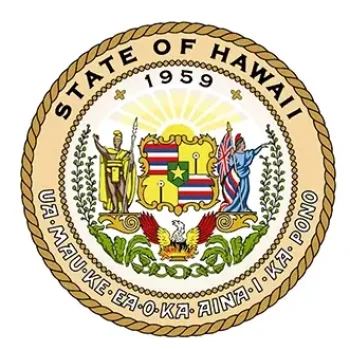Hawaii recently amended its law regulating charitable fundraising platforms and extended the effective date to July 1, 2026. According to an opening statement in the amendment bill, while the law was originally enacted in 2024 “to ensure proper and transparent fundraising activities in the State,” the legislature determined that it would be prudent to amend the new law “in a manner that would still achieve the important purposes of public protection, donor security, and transparency, but not overburden charitable fundraising platforms, charitable organizations, and the department of the attorney general, which oversees these activities.”
Hawaii’s new law follows California’s 2023 enactment of a similar law regulating charitable fundraising platforms. Hawaii’s decision to enact similar legislation was motivated by concerns about the legitimacy of some online fundraising campaigns to support Maui wildfire relief efforts. As of now, California and Hawaii are the only states that have enacted legislation specifically aimed at regulating the activities of online platforms that facilitate charitable fundraising.
The new law defines a “charitable fundraising platform” as “any person that uses the Internet to provide an internet website, service, or other platform to persons in the State, and performs, permits, or otherwise enables acts of solicitation to occur.” This broad definition closely mirrors the one used in California’s law and applies to most websites that facilitate the receipt of online donations, with few exceptions.
It also applies to websites that run multiple promotions, advertising that a portion of the purchase price from the sale of goods or services will be donated to specified charities. It also applies to websites or platforms that voluntarily invite customers to add a donation during the checkout process, or that encourage individuals to take specific actions to trigger donations.
The bill also regulates platform charities, which are charitable organizations that facilitate acts of solicitation on a charitable fundraising platform.
Key Components of the New Law
As amended, Hawaii’s new law includes the following key components.
1. Registration & Reporting
Charitable fundraising platforms and platform charities must annually register and submit information to the Attorney General’s office to enable them to ascertain whether charitable funds have been properly solicited, received, held, controlled, or distributed. This includes information on the number of donations made, the amount raised, the length of time for distributing donations or grants of recommended donations, fees charged by or through a charitable fundraising platform or platform charity, and names of recipient charities that were sent or have not yet been sent donations or grants of recommended donations.
2. Required Disclosures
The new law will require charitable fundraising platforms to clearly disclose certain information, including: (1) a statement about who will receive the donations; (2) if applicable, a statement that a recipient charity may not receive donations or grants of recommended donations, with an explanation identifying the most pertinent reasons that a recipient charity may not receive the funds; (3) the maximum length of time it takes to send the donation or a grant of the recommended donation to a recipient charity, with an explanation of the time needed (unless the donation is sent contemporaneously to the recipient charity); (4) the fees or other amount, if any, deducted from or added to the donation or a grant of the recommended donation; and (5) a statement as to the tax deductibility of the donation. The new law permits some, but not all, of these disclosures to be provided through a conspicuous hyperlink, so long as the disclosure is conspicuous when the hyperlink is selected.
3. Written Consent of Charity Beneficiaries
Charitable fundraising platforms must obtain affirmative written consent from a recipient charity before using its name in a solicitation.
4. Soliciting or Receiving Funds Only for Charities in Good Standing
A charitable fundraising platform or platform charity may only facilitate solicitations or receive donations for charitable organizations in good standing. “Good standing” means the platform charity or other recipient charity is not prohibited from soliciting or operating in the state.
5. Segregation of Funds
Charitable fundraising platforms and platform charities must hold charitable funds raised in a separate account or accounts from other funds belonging to the platform or platform charity.
6. Prompt Distribution of Donations/Grants and Donation Tax Receipts
Fundraising platforms and platform charities must promptly send donations to recipient charitable organizations with an accounting of any fees assessed for processing the funds, subject to any additional regulations that may be established by the Hawaii Attorney General (which would presumably define what time frame constitutes “promptly”). Fundraising platforms and platform charities must also promptly provide a donation tax receipt to the donor.
Avoiding Duplicative Registration and Compliance Obligations
Recognizing that some charitable fundraising platforms could meet the definition of professional solicitor and commercial co-venturer, the law provides the following clarifications to avoid such overlap.
1. Professional Solicitor
If an entity meets the definition of both a professional solicitor and a charitable fundraising platform, it will only be a professional solicitor when the entity, for compensation, performs any of the following acts of solicitation.
- Direct mail solicitation, excluding electronic mail or messages
- Estate gift or estate planning solicitation
- In-person solicitation through a fundraising event, door-to-door or other public spaces, or a vending machine or similar equipment that does not use a person to perform the solicitation
- Noncash solicitation
- Nonincidental acts of solicitation that are not internet-based, including solicitation through print, radio, or television
- Solicitation involving receiving something of value, or a chance to win something of value, in connection with a donation
- Telephone solicitation
2. Commercial Co-venturer
An entity that meets the definition of both a commercial co-venturer and a charitable fundraising platform will be only a commercial co-venturer when the acts of solicitation through an internet website, service, or other platform to persons in the state are for six (6) or fewer recipient charities per calendar year. Entities that conduct online charitable sales promotions for seven (7) or more recipient charities per calendar year will be regulated as charitable fundraising platforms.
The Recent Amendments
The recent amendments made a few key changes, including (a) eliminating state or federal tax-exempt status from the definition of “good standing;” (b) eliminating the imposition of vicarious liability on a platform charity for any misuse of funds by its partnering charitable fundraising platform; (c) eliminating the extension of certain provisions applicable to professional fundraisers (e.g., filing of contracts with charitable organizations; deposit of funds into a charitable organization’s bank account within 5 days of receipt); and (d) clarifying which regulations an entity is subject to if it meets the definition of both a commercial co-venturer and charitable fundraising platform.
Key Differences from California’s Fundraising Platform Law
While Hawaii’s charitable fundraising platform law is modeled after California’s law, it differs in a couple of notable ways that make it both less and more burdensome.
1. Definition of “Good Standing”
Whereas California defines “good standing” to mean the platform charity or other recipient charity’s tax-exempt status has not been revoked by the Internal Revenue Service or the California Franchise Tax Board, or is not prohibited from soliciting or operating in California by the Attorney General; Hawaii’s definition of “good standing” (as recently amended) only includes organizations that the Attorney General has not prohibited from soliciting or operating in the state.
While it is still to be seen how broadly or narrowly Hawaii will implement its good standing definition (read about the harsh consequences of California’s regulatory approach), Hawaii’s simpler definition should minimize the number of organizations that fundraising platforms must block from receiving donations.
2. Written Consent
Unlike California’s law, which provides a limited exception when written consent is not required from a recipient charity if specific procedures are followed, Hawaii mandates charitable fundraising platforms to obtain affirmative written consent from any recipient charitable organization before including it on their platform. This difference in the approach to written consent will particularly impact fundraising platforms that facilitate donations to an extensive list of organizations where the benefiting organization is chosen by the donor/purchaser/user/peer-to-peer fundraiser (e.g., “choose from any of 1+ million charitable organizations to support”). In these platform structures, donations are typically first received by a platform charity, which then makes a grant to the selected recipient charity.
To better understand how Hawaii’s charitable fundraising platform law compares to California’s, please read California Enacts New Law to Regulate Charitable Fundraising Platforms, which summarizes the key components of California’s law.
The Hawaii Attorney General has yet to publish registration and reporting forms for charitable fundraising platforms and platform charities, or rules implementing the new law. Stay tuned for further updates.
- Karen l. Wuhttps://perlmanandperlman.com/author/karenwu/
- Karen l. Wuhttps://perlmanandperlman.com/author/karenwu/
- Karen l. Wuhttps://perlmanandperlman.com/author/karenwu/
- Karen l. Wuhttps://perlmanandperlman.com/author/karenwu/









